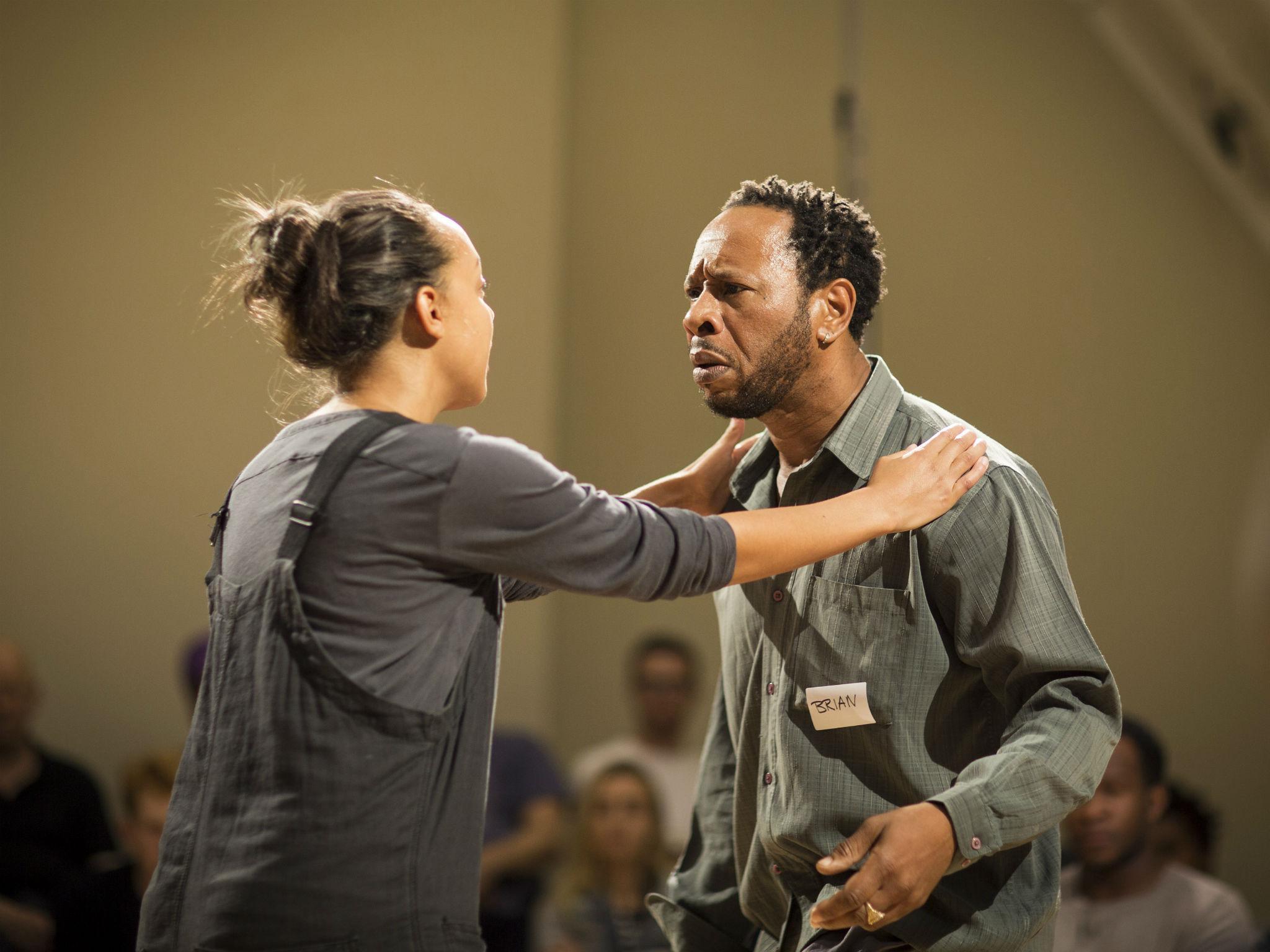Torn, Theatre Upstairs, Royal Court, London, review: 'You can hear a pin drop'
Nathaniel Martello-White's remarkable new play focuses on the generations of secrets and lies that have shattered the mixed-race Brook clan

“Look – look at the wreckage!” declares one of the characters towards the end of Torn. “There is no us! There's no family! There's just memories... and even they are questionable.” Nathaniel Martello-White’s remarkable new play focuses on the generations of secrets and lies that have shattered the mixed-race Brook clan. At the start, the youngest member, Angel, has called a family gathering – mother, father, three aunts, brother and cousin – to sift through the debris, with particular reference to the way they treated her childhood allegation of abuse against her white stepfather, Steve. The audience sits round the perimeter of what initially looks like the prelude to a bloody but predictably structured therapy session as Angel arranges the plastic chairs in a ring (tea urn at the side) in a Theatre Upstairs reconfigured to resemble a community centre.
In fact, while all the family are constantly present (either taking part or watching), Torn eloquently jettisons a linear approach for a form that’s full of instantaneous leaps into fractured flashbacks and resounds with rapid-fire overlapping dialogue. To say that the proceedings are non-chronological would be something of an understatement. Scenes merge; there are deliberately few concessions to playing old or young. It can’t be denied that to be pitched head first into all this is bewildering, especially given the extraordinary knottiness of the Brook family tree: for example, Nanny, the alcoholic matriarch, now deceased but often quoted, seems to have had four daughters – two of them identical twins – but not with the same man or of the same skin colour. It’s rather quaint that even the characters helpfully refer to one another by their family status: “You forget, second twin, when the fridge was empty.”
Gradually, though, you begin to appreciate how powerfully the form reflects the recurrent, nagging nature of long-held resentment within families. And even while you’re acclimatising yourself to the Brooks’ confusing world, Richard Twyman's fast-paced, beautifully orchestrated production pulls you in. The performances have a wonderful sustained vehemence and subtle intensity. Adelle Leonce perfectly combines fierce zeal and vulnerability as the trouble-making victim Angel, while the excellent Indra Ové, as her mother, oozes the flaky damage and defiant denial of a woman determined to escape the shame of her own childhood, even if her black kids are traded off in the process.
The dialogue occasionally feels overwritten (“I see now that her volatile fits took precedence over my journey into manhood”), but there are some superb passages, as when Steve, the “tick-all-the-boxes whitey”, lectures the eight-year-old Angel about the difference between the black slaves who worked in the fields and the mixed-race ones who worked in the house. You can hear a pin drop as he delivers this lengthy, loathsome speech, steeped in tactical flattery and threat, and then waits while she makes him a cup of tea.
Martello-White is a fine actor (last seen with Denise Gough in People, Places and Things). Torn is his follow-up to Blackta, a biting satire about the dearth of roles for black performers. Once again, in this latest piece, where nothing is tidily resolved and any victories are pyrrhic, you feel that he understands the material through and through. I look forward keenly to his next play.
To 15 October; 020 7565 5000
Join our commenting forum
Join thought-provoking conversations, follow other Independent readers and see their replies
Comments
Bookmark popover
Removed from bookmarks